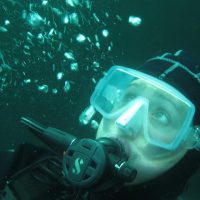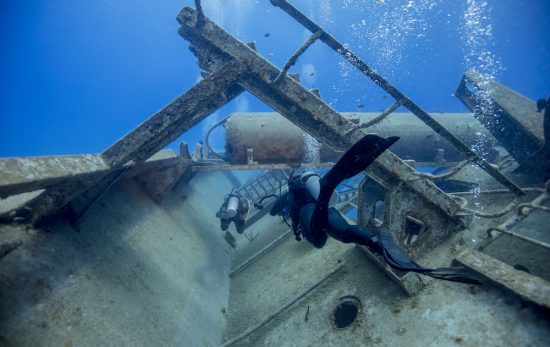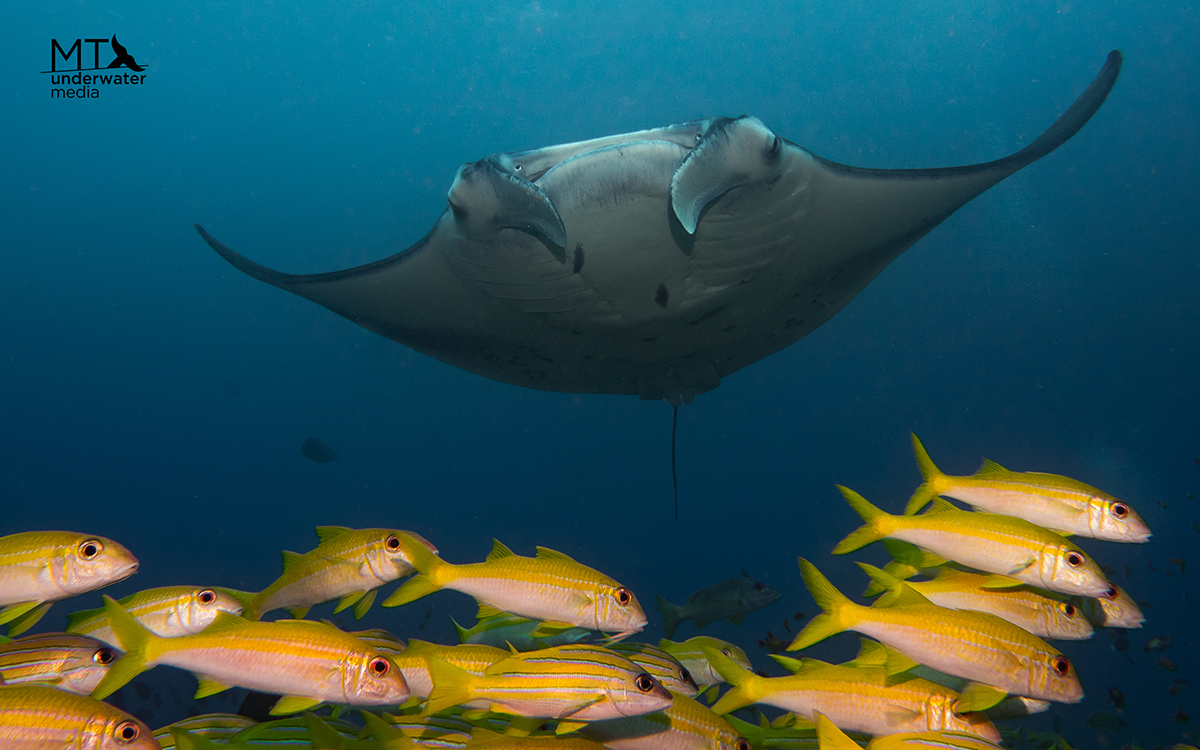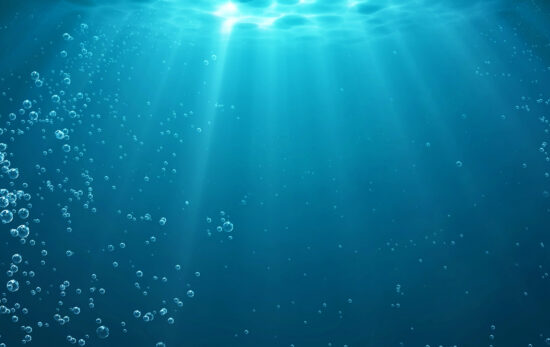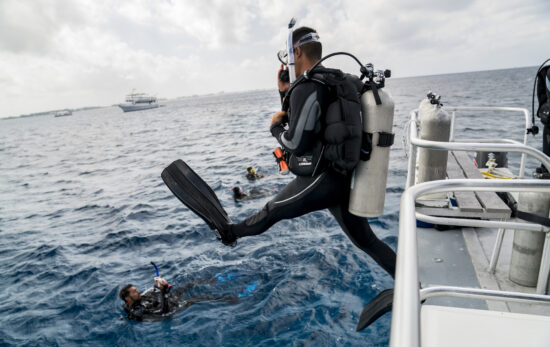Descending into the depths on a scuba dive, we can hear only bubbles. We may also notice that the silence moves from the water and hushes the noise in our heads. Mind chatter reduces, and we can focus on the present, paying attention to our diving and the environment around us. Divers report that we feel happier and healthier when we dive, and many will say that diving is their therapy. Perhaps one reason for this is that being in water alters how we talk and think.
The problem of language
Language can be useful because we can use it to explain and plan, but we can also use it against ourselves. Having words to describe something that happened in the past lets us ruminate over what we did, or should have done. Being able to tell ourselves stories about the future allows us to worry about things that may never occur. Psychological research has shown that more than two-thirds of our thoughts are negative! We often criticize ourselves in our minds and hold onto stories that are not helpful for us. We use language to compare, to judge and to berate. We do not see the damage we do by talking to ourselves this way.
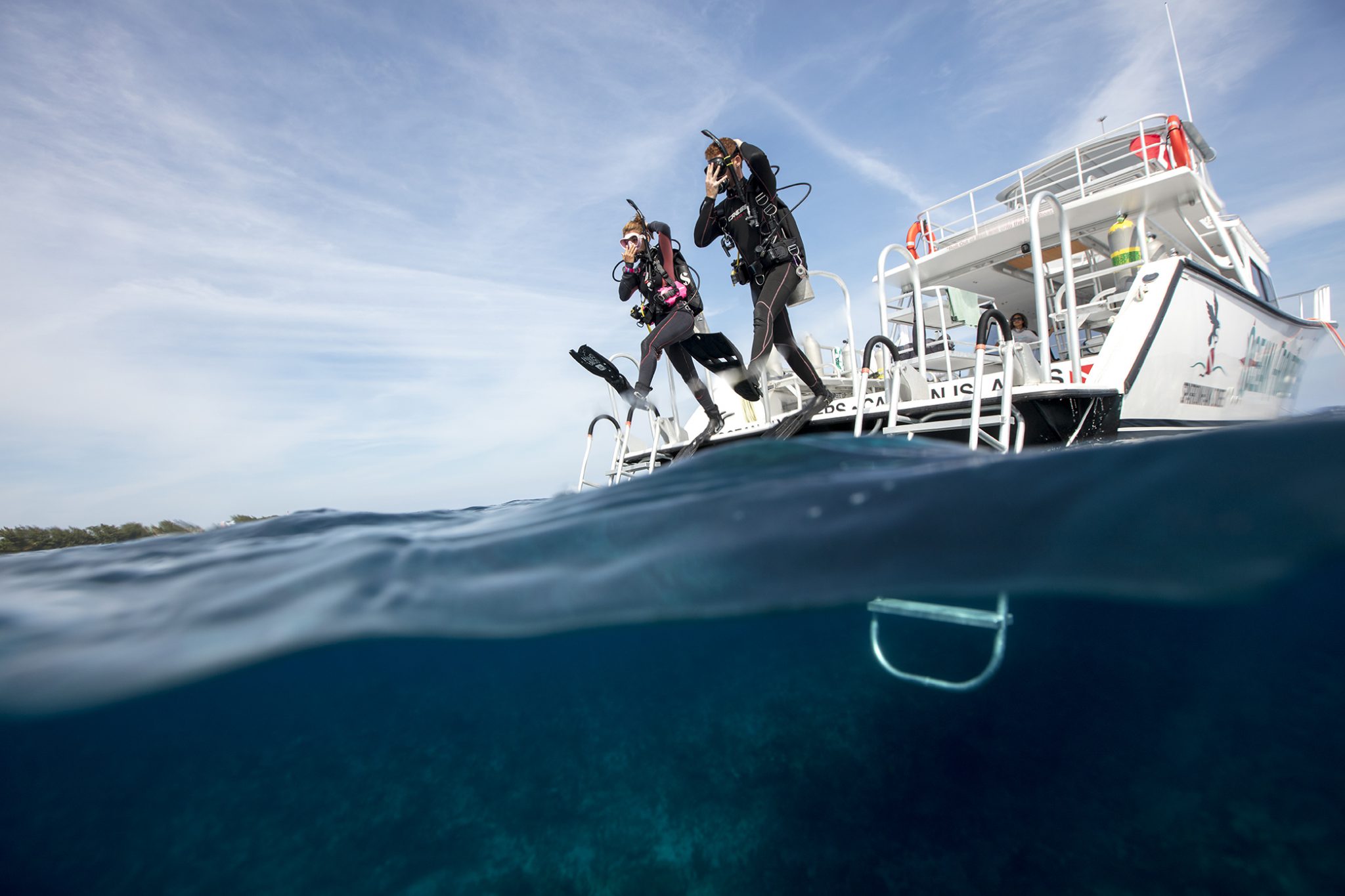
Escape under the surface
It is difficult for sound to travel between air and water, therefore the surface creates a barrier that allows us to escape the external noise of the everyday world. Conversation is on hold because we cannot talk, and we cannot access our emails. Unless we are fluent in sign language, we are suddenly separated from linguistic communication, so it becomes unnecessary to hold on to the stressful stories. Dive signs and slates enable us to exchange important information, but the less necessary verbal chat is stripped away. Underwater, we are isolated in peaceful silence.
There are no words
Words are labels that we use to communicate with others, and they form the thoughts in our minds. Words are connections to the objects around us. When we enter the underwater environment, many of us have no words. When we first dive, we look around for things we can recognize and, for many divers, the words we have are limited to color names and “FISH!” This temporary disconnection from our everyday language can be liberating, shifting our minds from our old judgements to the new and unlabeled.

Thinking under pressure
Our thinking and reaction times are often slowed underwater. Thinking happens through connections within our brains, and it could be that the effect of pressure at depth slows down the activity between those connections. This slowed mental activity may mute thoughts. We need to be aware of how this can affect our ability to carry out tasks underwater. We deal with this by planning dives within our comfort zone and avoiding excessive task-loading. Focusing on our dive, the unimportant worries bothering us in our thoughts often fade into the background.
Language is important for effective communication. But, when we use our words to dwell on the past or worry about the future, our psychological health is affected. As divers we have the opportunity to leave those words on the surface and, maybe, let the ocean teach us to think differently, because the silent world quietens the mind.
The best way to experience Wellness Unfiltered and this quieting of the mind underwater is to learn to dive. Find your local dive shop and learn to #LiveUnfiltered.
Author Bio
Dr. Laura Walton is a Clinical Psychologist and PADI Master Instructor with a fascination for the psychology of diving. Visit Fit To Dive to learn more about our behavior as divers.
